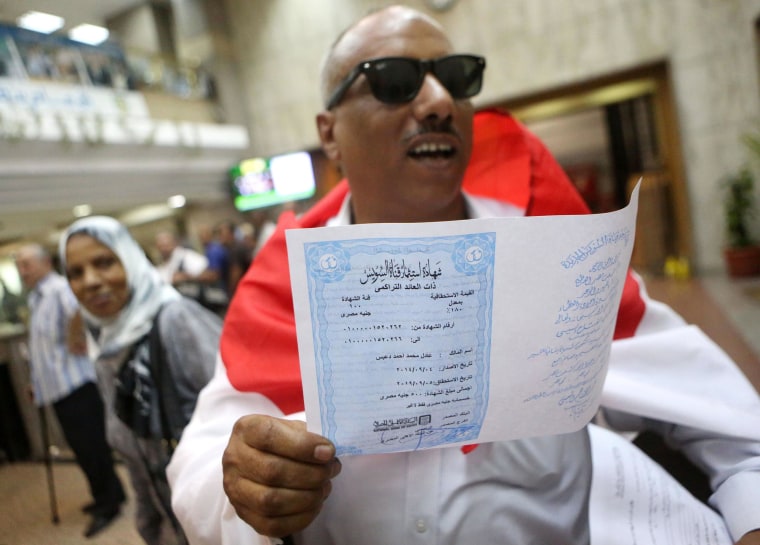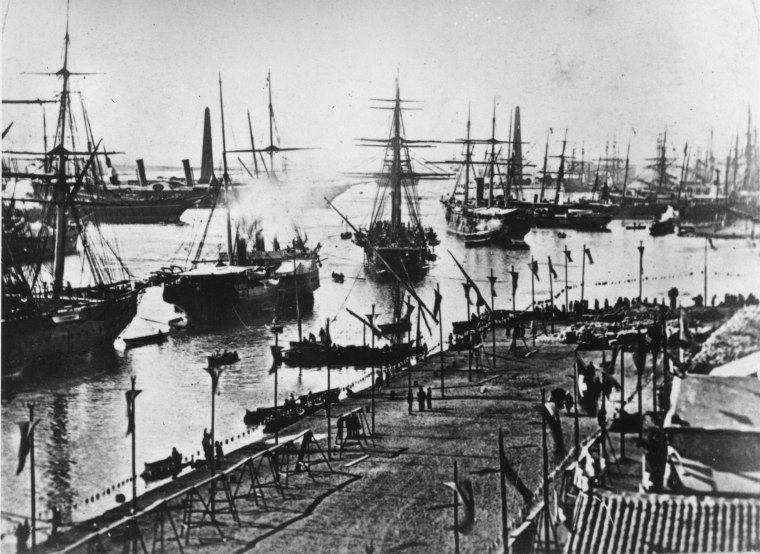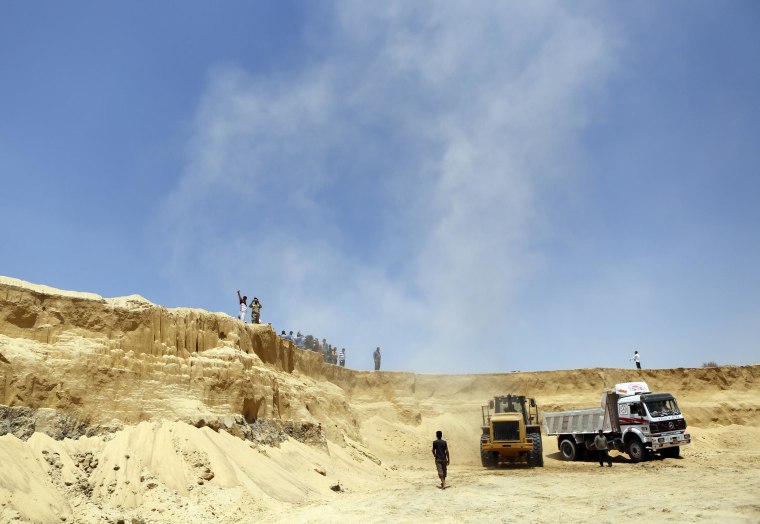CAIRO - Brand “Egypt” has had a tough few years. After the euphoria of the Arab Spring swept authoritarian Hosni Mubarak from power 2011, the largest and arguably most important Arab nation has staggered from one crisis to another.
Its first democratically elected president, the Islamist Mohamed Morsi, was ousted amid deadly violence in July 2013 and the detention of activists and journalists has drawn unwelcome attention. Meanwhile, a sharp economic downturn, shrinking tourism revenue and crumbling public services have worsened the lives of already struggling Egyptians.
But finally there is a success Egyptians can be proud of. Citizens hungry to invest in the country's future have poured a collective $8.5 billion into an upgrade of the iconic Suez Canal, long a symbol of national pride.
“For all the years that have passed, this is the first time something will really benefit the country.”
President Abdel-Fattah el-Sissi's plan to build a waterway parallel to the Suez Canal announced struck a deep chord among Egyptians, and people from all walks of life rushed to finance the project in just 11 days.
For astronomer Mahdi Saad, his $10,000 investment is about a lot more than the annual return of 12 percent he's set to make on the five-year certificates.
“It is like we built the pyramids and we built the Suez Canal, something that will be there for all time,” said the 46-year-old Cairo resident. "It is not a question of the interest — we have to build Egypt with our hands for our children.”

According to Egypt's Central Bank, 82 percent of the certificates were bought by individuals — as opposed to institutions — an impressive figure considering that only 10 percent of Egyptians have bank accounts, according to the World Bank.
Why the eagerness to invest? Because while there have been canals since the age of the pharaohs, nothing says Egypt quite like the 101-mile Suez Canal.
One of the world’s busiest waterways, it links the Mediterranean Sea to the Red Sea and allows ships to skip sailing around the continent of Africa. It was built between 1859 and 1869 by Universal Suez Ship Canal Company at the cost of thousands of lives of forced Egyptian laborers. It went on to become an icon of independence when popular President Gamal Abdul Nasser nationalized the waterway in 1956, sparking an invasion by Egypt by the U.K., France and Israel.
Under President Anwar Sadat, the Egyptian army crossed the canal to retake the Sinai from Israeli forces in 1973. While digging the new waterway this past month, workers discovered the body of an Egyptian soldier still in the era’s army fatigues, reinforcing the message of sacrifice the canal carries with it.
While investors were attracted by the guaranteed returns on their investment, a desire to contribute to the future and an attachment to a symbol of national pride drove its popularity.

“I invested because the plan was an excellent one for our country. We are benefiting our children,” said Chahir Zaki, an economics professor at Cairo University.
“It’s a patriotic issue, given the popularity of [president] Sissi. Egyptians are witnessing a patriotic wave,” he said. “There is an economic attachment to the project, but an emotional attachment to the history.”
Ashraf al Qadri, 25-year-old Cairo clerical worker invested $5,600 to take advantage of the attractive returns, but he also wanted to pay homage to those who died building the first canal.
“I want to do something for the country — for what we accomplished — that my children will profit from,” he said.
By all accounts, projected revenue will go some way toward healing Egypt’s economic ills.
The Suez Canal is already Egypt’s number-one foreign currency earner. Once the project is completed in a year’s time, canal traffic will double because the new waterway, running parallel to the old for 45 miles, will allow two-way traffic. Deepening the canal will permit fully loaded giant vessels, about 65 percent of all traffic, to transit.
The country's investment minister Ashraf Salman said in a press conference that the project will bring in $2 to $5 billion in revenue in the next two to three years, in addition to $220 billion in investments in the next 15.
But above and beyond the money, though, this project is just making Egyptians like Qadri proud.
“For all the years that have passed, this is the first time something will really benefit the country,” he said.
